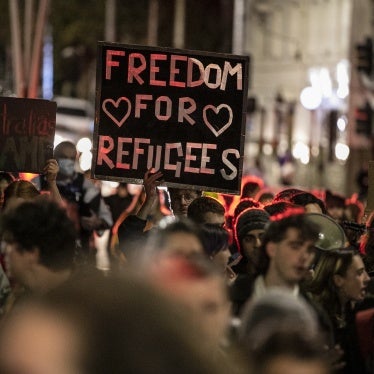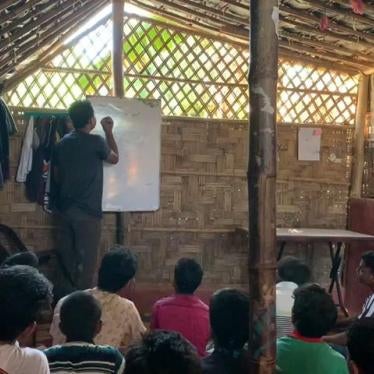(New York) -- Human Rights Watch today praised the efforts of the Cambodian government and the Office of U.N. High Commissioner for Refugees (UNHCR) in providing protection for twenty-four indigenous minority asylum seekers from Vietnam. Eighteen refugees have already left for the United States and the remaining six have been approved for departure in the coming days.
"Cambodia did a good job of handling this politically sensitive case," said Sidney Jones, executive director for Asia at Human Rights Watch. "Thanks to the cooperation of Prime Minister Hun Sen and other officials, the UNHCR was able to meet with the refugees and see them to safety."
The arrival of indigenous Jarai, Rhade, and Mnong (Pnong) people in Cambodia in recent weeks followed widespread rural unrest and a government crackdown in the Vietnamese Central Highland provinces of Gia Lai, Dak Lak and Kon Tum. In early February, thousands of indigenous minority people in those provinces had participated in demonstrations calling for land rights.
In response, Vietnamese police and military were sent into the region, arresting at least twenty indigenous minority leaders, cutting off telephone communications, and banning diplomats, international organizations, and foreign media from visiting the area. The only outside visit allowed was a government-sponsored press tour to Gia Lai and Dak Lak provinces on March 16-17.
Fearing arrest, a number of indigenous people from the Central Highlands fled to northeastern Cambodia in early March. In mid-March, Cambodian police arrested twenty-four of them in Mondolkiri province, Cambodia. The highlanders were transported to Phnom Penh, where they were detained at the municipal Gendarmerie headquarters for several weeks. On March 31, Cambodian officials agreed to allow UNHCR representatives to interview the detainees.
Persons in Vietnam who are involved in non-violent political activity deemed by the authorities to be "anti-government" are subject to arrest and prosecution. Vietnamese criminal law provides for harsh punishment for a wide variety of offenses, including vaguely defined political crimes such as undermining peace or subverting state unity.
The courts in Vietnam are not independent, but under the control of the ruling Communist party. "In Vietnam, the peaceful expression of dissent is often treated as a criminal act, even though such expression is protected under international human rights law," said Jones "We are glad to see Cambodia living up to its international obligations."
Human Rights Watch expressed concern, however, about the behavior of the Vietnamese Red Cross, which is a member of the International Federation of Red Cross and Red Crescent Societies. Prior to the refugees' departure from Phnom Penh, a delegation from the Vietnamese Red Cross met with the group and showed them videotapes of their families in Vietnam, pleading for them to return.
"This is completely inappropriate behavior on the part of the Red Cross. Showing the videotapes was a form of coercion and naturally would lead those in flight to worry that their family members might be at risk," said Jones.
Cambodia is a State party to the 1951 Convention Relating to the Status of Refugees. Central to the Refugee Convention is the prohibition of the forcible return of any person to a country where he or she has a well-founded fear of persecution.







